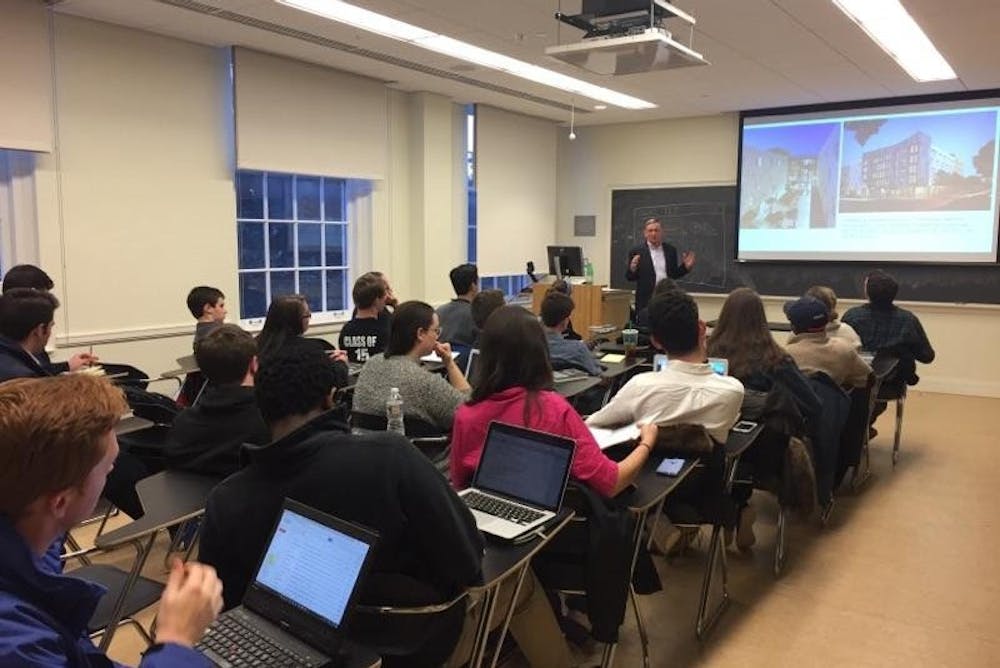The American Enterprise Institute Executive Council at U.Va. and the Burke Society hosted a talk with Economics and Public Policy Prof. Ed Olsen discussing how to reduce poverty by reforming housing policy Tuesday in New Cabell Hall.
“Our council's goal in hosting these talks is to promote substantive conversations about public policy on Grounds,” said Callie Johnson, a fourth-year College student and AEIEC chair. “We strive to select a wide variety of topics that give students opportunities to engage with real-world issues that are currently evolving.”
Olsen work has focused on public policy issues, including the welfare system and low-income housing.
“Low-income housing assistance is fertile ground for reforms that would produce better outcomes with less public spending,” Olsen said at the event. “To appreciate the considerable potential for alleviating poverty through housing policy reforms, it’s essential to know the nature of current programs and the evidence about their performance.”
Olsen discussed issues facing government-funded low-income housing as well as solutions for them. Additionally, the book “A Safety Net That Works: Improving Federal Programs for Low-Income Americans,” for which Olsen was a contributor, was given out at the event.
“The largest programs of this type are the Low-Income Housing Tax Credit that delivers subsidies through the federal tax system and [the Department of Housing and Urban Development’s] Section 8 New Construction and Substantial Rehabilitation Program,” Olsen said. “But there are many others.”
Olsen outlined two major problems in the low-income housing system — having heavy costs for the housing provided to low-income housing recipients and providing aid to households without the greatest need.
Olsen also took questions about low-income housing and his solutions from the audience following his discussion.
Emily Irwin, a fourth-year Batten student and AEIEC member, said she understood Olsen’s argument more from attending the discussion.
“One thing I really like [that Olsen targets] is helping the poorest and most impoverished in a community,” Irwin said. “It works up.”
Johnson said the AEIEC hosts talks like these once or twice a semester, and the goals of the talks are to stimulate public policy conversation and give students exposure to real-world issues.
“We hope that students will learn anything and everything they wanted to know about low-income housing policy,” Johnson said in an email statement. “In particular, we hope that the audience will learn more about the current state of housing policy, possible alternatives going forward, and potentially what housing policy might look like under the new administration.”





